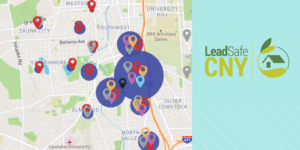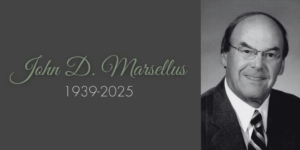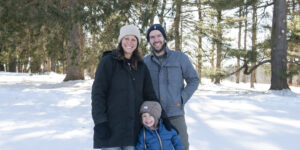The Central New York Community Foundation is awarding a $15,000 grant to Interfaith Works to promote completion of the 2020 Census with New Americans and seniors, two populations that are notoriously undercounted in the decennial count. This is one of five grants awarded by the Community Foundation, totaling $65,000, to ensure Central New York’s residents are accurately counted.
The United States Census is conducted every ten years to count the population, resulting in the allocation of more than $800 billion in annual federal funding and the reapportionment of seats in the House of Representatives. It is estimated by the George Washington University Institute of Public Policy that for every one person not counted, communities lose approximately $1,000 in funding per year toward hospitals, schools, transportation, parks, public facilities and nonprofit organizations.
“Not accounting for every individual living in our region could have a devastating impact on Central New Yorkers for years to come,” said Robyn Smith, director, strategic initiatives at the Community Foundation. “An undercount disparity deprives underserved communities of political power, government resources, and private sector investment.”
Interfaith Works will be using the grant dollars to conduct on- and off-site education workshops for refugee and elderly clients of its Center for New Americans and Senior Services Office, in addition to other hard-to-count populations in collaboration with partner agencies.
“Our agency has become a trusted voice, an advocate for community needs and a companion to vulnerable people in our community,” said Lori Klivak, PhD, director, senior services for Interfaith Works. “This puts us in a unique position to facilitate dialogue and empower the vulnerable, including people that are hard to count, connect and persuade.”
An interactive map designed by the CUNY Mapping Service at the City University of New York’s Graduate Center displays which Syracuse census tracts were estimated to have been undercounted in 2010. The regions most affected include the majority of the Southside and Near Westside of Syracuse as well as concentrated neighborhoods within the Northside and Eastside.
Historically, hard-to-count populations have included immigrants, the elderly, those living in rural areas and low-income households, limited-English proficient populations, and young children. The most common reasons for not completing the census have been identified as distrust in government, language barriers, and frequent residency changes.
“Refugees, people with limited English proficiency, and elder residents are undercounted due to issues of trust, culture, language, literacy, and digital connectivity,” said Klivak. “Many do not understand the importance of being counted.”
The Digital Divide is likely to play a role in hindering responses. For the first time, the Census Bureau is primarily collecting responses using an online system, leaving households with no computer or adequate internet access at serious risk of being undercounted.
To address this concern, Interfaith Works will be using a portion of its grant to install a computer kiosk to make it easier for visitors of its James Street facility to complete the survey.
“We believe it is crucial for our New American and senior populations to be counted,” said Klivak. “This grant will allow us to inform and educate, to encourage participation and provide a private, safe place to complete the survey.”
In addition to advocating for the region’s nonprofits to receive adequate federal funding, the Community Foundation is encouraging a complete count because it uses census data to prioritize its grants and initiatives. It also uses the numbers to inform CNYVitals.org, a website designed to present the general public with data about Central New York communities.
“As an institution that relies heavily on census data to make key funding decisions of our own, a full and accurate count is one of our most pressing concerns,” said Smith.
The Community Foundation has awarded four additional grants this year aimed at addressing this issue. Tomorrow’s Neighborhood Today (TNT) received a $20,000 grant to educate city residents on the importance of census completion. The New York Immigration Coalition (NYIC) received $10,000 to support the Local Update of Census Addresses (LUCA) process, the opportunity for governments to add, correct or delete addresses on the lists and maps used to conduct the census. Most recently, $10,000 was awarded to the City of Syracuse to hire a Complete Count Committee coordinator. The Community Foundation also contributed $10,000 to the New York State Census Equity Fund, a pooled fund that awards grants across the state to provide community education and mobilization, advocacy and technical assistance.
Smith says the organization plans to continue its funding – through April of 2020 when the count begins – toward efforts that encourage hard-to-count populations to complete the census.
“This is an all-hands-on-deck moment,” she said. “We must all stand up for the representation and resources our communities deserve.”









